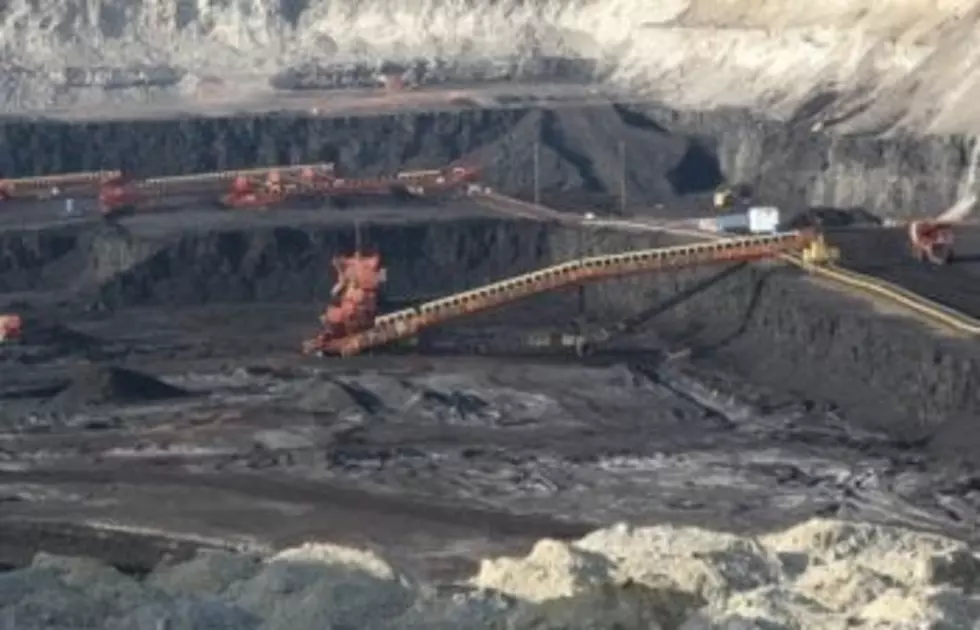
Coalition of states, environmentalists sue feds over planned coal leases
(CN) — A large coalition of states, environmental organizations and the Northern Cheyenne Tribe have filed fresh challenges against the Trump administration’s decision to open millions of acres of public lands up for new coal leasing and mining.
Environmentalists including the Citizens for Clean Energy, Center for Biological Diversity and the Sierra Club sued the U.S. Department of the Interior and Bureau of Land Management as part of an ongoing dispute that began in 2017 over the government’s decision to open up public lands to coal leasing. California, Washington state, New Mexico and New York took similar action Monday as well.
The dispute stems from a decision by then-Interior Secretary Ryan Zinke who, acting under an executive order signed by President Trump, lifted a moratorium on coal leasing on public lands enacted by the Obama administration. The Zinke order, issued just over two months into Trump’s presidency in March 2017, claimed that “the public interest is not served by halting the federal coal program for an extended time.”
Environmentalists and others say the government lifted the Obama-era pause without preparing the required environmental impact statement on how the decision would influence the environment, in violation of the National Environmental Policy Act (NEPA).
The dispute ultimately came to a head in 2019, when U.S. District Judge Brian Morris, a Barack Obama appointee, found that the government had failed to carry out a proper analysis. In response, the Trump administration promised to fix the issues outlined by the judge.
This past May, however, during a hearing on the adequacy of the government’s environmental follow-up, environmental groups argued the government’s response was still not enough and did not pass muster under NEPA.
Shortly afterwards, Morris sided with the federal government regarding its environmental analysis — with a crucial caveat.
While Morris found that government had satisfied its duty under NEPA by completing the environmental analysis, he didn’t evaluate the government’s findings. Instead, he said the environmentalists could continue to challenge the content of the analysis to ensure that it complies with the proper regulations — which is exactly what environmental groups did on Monday.
“The administration has put together this very rushed, quite truncated environmental analysis, and now we’re saying look, they didn’t comply with the law in 2017; they’re still not complying with the law,” Jenny Harbine, attorney at the Earthjustice Legal Defense Fund, said during a phone interview.
The groups claim the assessment by the government was inadequate on several levels. For one, they say the analysis only looked at four coal leases that the Bureau of Land Management had previously issued before concluding that the disputed leases did not cause any significant environmental harm.
They also say the Bureau of Land Management did not give a good look at other related coal-leasing activities across a 570-million-acre federal mineral estate that accounts for roughly 255 billion tons of mineable coal.
Harbine said that as a result of these shortcomings, the best path forward is to bring back the coal leasing moratorium until the government can properly justify its leasing decisions.
“The appropriate response is to reinstate the federal coal leasing moratorium, unless and until this administration and the federal government can really put forward a rational justification for continuing to allow the coal industry to profit off of our federal public lands in way that harms public health. We don’t think that there is a rational justification, but that is the administration’s job.”
Harbine said that ultimately the lawsuit is about the federal government taking its responsibility to the environment seriously and moving toward an end to coal mining on public land for the sake of our environmental health.
“It’s our belief, that is supported by science, that we can’t continue to take fossil fuels out of our federal public lands and convert them to harmful climate pollution,” Harbine said. “To have any kind of rational nation response to avert a climate catastrophe, we have to make the very reasonable decision to stop mining coal from our federal public lands. That is our endgame.”
An Interior Department spokesperson did not immediately respond to a request for comment by press time.
